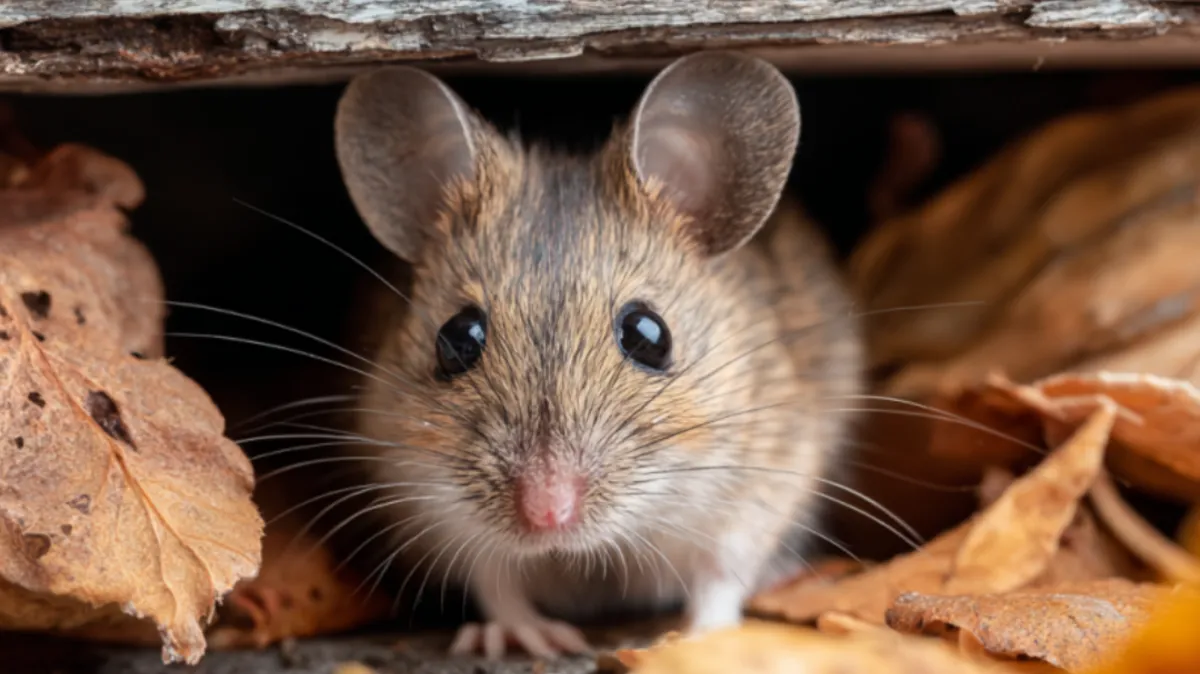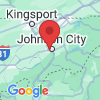The Shield Pest Journal
Check out Shield Pest Appalachia’s most recent blog posts for helpful pest prevention and control suggestions. Our blog covers from detecting common pests to creating tailored solutions in the Tennessee and Virginia areas. Do you have a pest-related question? Contact us today for experienced guidance and solutions targeted to your specific needs.

Fall Pest-Proofing in Appalachia: Protecting Your Home in Johnson City, TN
Seal Entry Points Before Cold Weather Hits
As temperatures begin to dip in Johnson City, TN, pests like mice and cockroaches shift into survival mode. Your warm, food-filled home becomes a prime target for these invaders. Preventing their entry starts with one of the most effective fall pest-proofing strategies: sealing all access points around your home.
Fall Pest-Proofing Checklist
Follow these essential steps to secure your home before pests try to move in:
1. Inspect All Exterior Doors and Windows
Examine door frames, window casings, and weather stripping for any signs of wear or damage.
Look for light shining through gaps when doors are closed—this often indicates a space pests can exploit.
Action Steps:Replace worn-out or cracked weather stripping.
Ensure doors close fully and latch tightly.
Repair or replace any torn window and door screens to prevent flying insects from entering.
2. Seal Utility Penetrations and Exterior Vents
Utility entry points such as plumbing lines, gas connections, cable wires, and HVAC systems are commonly overlooked access points.
Action Steps:Use weatherproof caulk or expandable foam to seal gaps around pipes and wires entering your home.
Check and repair gaps around dryer vents, attic vents, and crawl space openings.
3. Install Door Sweeps
Rodents and crawling insects can squeeze through surprisingly small gaps beneath doors—sometimes as small as a quarter inch.
Action Steps:Add durable door sweeps to all exterior doors, including garage entries and side doors.
Inspect threshold seals to make sure they’re flush with the floor.
Tidy Storage Areas and Basements
As autumn arrives in Johnson City, TN, rodents and insects start scouting out secluded, warm spaces to settle in for the colder months. Your basement, attic, garage, and storage closets are often top choices. These areas tend to be less disturbed and filled with boxes, unused items, and soft materials—ideal for pests looking to nest undetected.
To keep unwanted guests out of your storage zones, it’s essential to tidy up and organize these spaces before the chill sets in.
Fall Organization Tips to Deter Pests
Use these four proven strategies to make your storage areas less attractive to pests:
1. Switch to Pest-Proof Storage
Cardboard boxes are a magnet for pests like silverfish, spiders, and rodents—they’re easy to chew through and provide cozy shelter.
Action Steps:Replace cardboard boxes with plastic storage bins that have tight-fitting lids.
Clearly label each bin to make seasonal item retrieval easier and reduce the need to dig through clutter.
2. Elevate and Isolate Stored Items
Pests often travel and nest along baseboards and wall edges, especially where clutter creates cover.
Action Steps:Keep all stored items at least 6 inches off the ground using shelving or pallets.
Maintain a 6–12 inch gap between stored items and the walls to allow for visual inspection and ventilation.
3. Clean Regularly and Target Pest-Prone Spots
Even infrequently used areas collect dust, crumbs, and cobwebs that invite pests to settle in.
Action Steps:Vacuum or sweep floors, corners, and baseboards at least once per season.
Pay special attention to dark corners, behind boxes, and under shelving, where pests are most likely to hide.
Address Moisture to Deter Spiders and Rodents
As the seasons shift and fall brings cooler temperatures to Johnson City, TN, indoor humidity levels often fluctuate. This change—combined with increased rainfall—creates damp, dark environments that attract unwanted pests like spiders, rodents, silverfish, and cockroaches. Moisture not only provides hydration but also creates ideal nesting grounds, especially in basements, crawlspaces, and under sinks.
To make your home less hospitable to pests this fall, it’s essential to reduce excess moisture both inside and outside your home.
Moisture Control Must-Dos
Here are four essential steps to eliminate pest-friendly damp areas in and around your home:
1. Fix Leaky Pipes, Faucets, and Fixtures
Dripping water is an open invitation for pests. Rodents, especially, are drawn to consistent water sources during dry spells.
Action Steps:Inspect all exposed plumbing in kitchens, bathrooms, laundry rooms, and basements.
Repair leaky faucets, dripping pipes, and corroded connections as soon as possible.
Don’t forget to check under sinks and behind appliances like washing machines and water heaters.
2. Use a Dehumidifier in High-Humidity Zones
Spiders and other moisture-loving pests thrive in damp air—especially in basements, crawlspaces, and poorly ventilated rooms.
Action Steps:Install a dehumidifier in areas with musty smells, condensation on walls, or mold growth.
Keep indoor humidity levels below 50% for optimal pest deterrence.
Empty and clean your dehumidifier regularly to prevent microbial buildup.
3. Ensure Proper Drainage Around the Home
Standing water outside your foundation can seep into basements or crawl spaces, creating ideal pest conditions inside.
Action Steps:Inspect and clean gutters and downspouts to prevent overflow.
Extend downspouts to ensure they drain at least 3–4 feet away from your foundation.
Regrade landscaping if needed to promote water flow away from the house.
4. Test and Maintain Your Sump Pump
Fall storms can quickly overwhelm basements without a working sump pump system, leading to flooding and pest attraction.
Action Steps:Test your sump pump by pouring water into the pit and making sure it activates properly.
Clean the pump inlet screen and check for any visible wear or corrosion.
Consider installing a battery backup system to keep your sump pump operational during power outages.
Don’t wait until pests are already inside—take control now with a fall pest-proofing service from Shield Pest Appalachia. Together, we’ll keep your home cozy, clean, and pest-free all autumn long.Call us today or schedule your inspection online.
Office:
1300 University Pkwy, Johnson City, TN 37604, United States
Call
423-379-2775
Copyright 2024. All Right Reserved.

